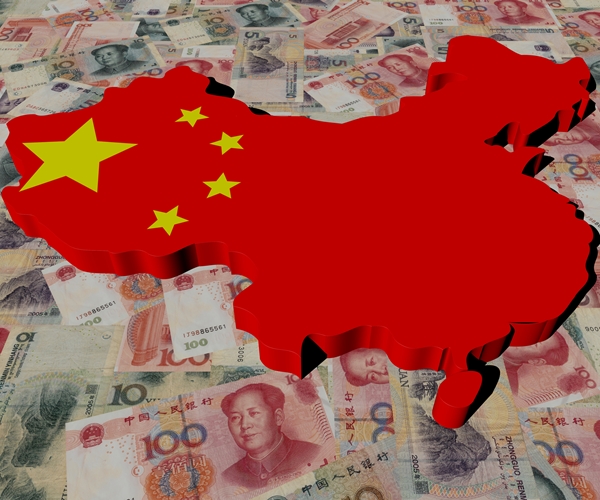The always entertaining and informative Marc Faber, editor
and publisher of the Gloom, Doom, & Boom Report, questioned,
as this writer has, why there is so much fuss over a
relatively modest devaluation of China’s yuan.
"You have to look at the Chinese currency in the context of
all other currencies,"
Faber told CNBC. He pointed out that
over the last several years it has appreciated against the
dollar, which in turn has been appreciating.
"The 2 or 3 percent devaluation of the yuan [against the
U.S. dollar] is completely meaningless," Faber said. "The
Chinese yuan has appreciated by 80 percent over the past two
years against the yen," he said.
"Don't forget the People's Bank of China has said that they
will have now a currency that will reflect more market
forces. And that means that if the market forces are against
the currency, then the currency will go down," Faber added.
Meanwhile, since 2011 the Brazilian real has depreciated by
60 percent, the Turkish lira by more than 50 percent, and
all the other Asian currencies but the Hong Kong dollar have
been weak for the past year as the yuan has appreciated by
80 percent against the yen.
The yuan has, for the past nine months, led a weakening in
Asian currencies coincident with the weakening of the
Chinese economy in the areas of car sales and industrial
commodities.
Faber called the Chinese economy “much weaker than the
consensus believes.”
He questioned whether China is growing at more than 2
percent, and he asked rhetorically, “Have you ever seen a
government that doesn’t lie? I haven’t.”
He cited the inflation figures reported by the U.S. and
added that the high end of the U.S. economy in New York,
Newport Beach, and Palo Alto (he might have mentioned
Washington) are doing well, “but the median household is
suffering by continuous, still-heavy debts, and from
affordability. The problem with supporting asset markets, as
the Fed and other central banks are doing, is that most
people who finish universities can’t afford to buy these
goods,” and they’re living with their parents.
In the next clip
Faber warned, as Raoul Pal has this
week, that U.S. companies dependant on China on the order of
35 percent of sales, such as United Technologies (UTX) and
General Motors (GM), will slump in the second half of this
year, and he pointed to slumps among German luxury car
manufacturers.
He concludes that liquidity is tightening globally, as
reflected in the strengthening of the dollar. When the
interviewer suggested this situation will worsen when the
Fed tightens rates, Faber responded that this policy “is not
written in stone.” He asserted that the Fed encouraged China
to let the yuan weaken and that any Fed action will be a
symbolic one-quarter percent.
Keith Fitz-Gerald, chief investment
strategist at MoneyMorning.com, agrees with Faber and
charges that “China did Yellen’s dirty work for her,” took
“the luxury of a rate hike” off the table, and postponed it
until at least the first quarter of 2016.
This writer and other critics of the Fed have held that it
was never going to raise rates in the face of opposition
from Wall Street and the IMF and the onset of an election
year. Faber also questioned reports that retail sales are
strong as “not the message you get from retailers.”
For those seeking something positive from Faber, he predicts
that there will be problems for poor bond credits and
Treasurys “will do quite well.”
Fitz-Gerald called Treasurys “the best looking horse in the
glue factory” as Faber expressed astonishment that French,
Italian, and Spanish government bonds are yielding less than
U.S. Treasurys: “I think that is quite remarkable.”
Finally, Fast Money’s
Guy Adami credits Brian Kelly for
predicting that U.S. stocks will eventually react negatively
to the fall in oil prices. Dan Nathan agreed and predicted
that new lows will occur “in a really nasty fashion,” and he
asked about “the knock-on effects in other risk assets.”
Adami went on to question, as experts at a conference did
last spring, the sustainability of consumer spending. This
writer would add that it is time to ask where the
vulnerabilities are in energy credits and whether this
market is headed for a 1980s-style bailout.
At that time investors protested, as they would later do
with housing, that they didn’t know prices could go down.
Marc Faber: China Currency Tactics 'Completely Meaningless'
 (Dollar Photo Club)
(Dollar Photo Club)
Friday, 14 Aug 2015
© 2015 Newsmax Finance. All rights reserved.